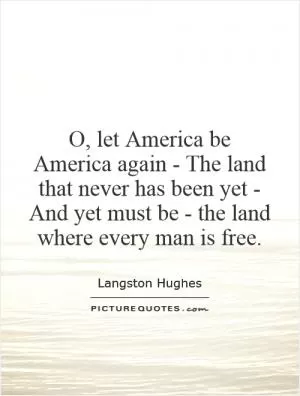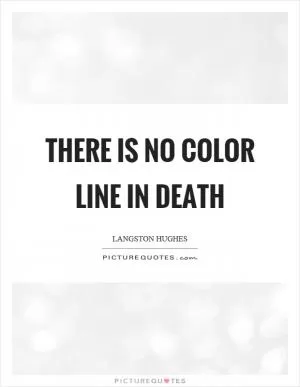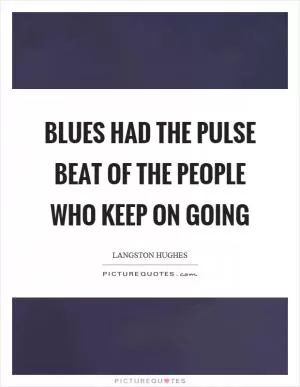I have discovered in life that there are ways of getting almost anywhere you want to go, if you really want to go

I have discovered in life that there are ways of getting almost anywhere you want to go, if you really want to go
Langston Hughes, a prominent figure in the Harlem Renaissance, was a poet, novelist, and playwright who used his work to explore the African American experience in the United States. Throughout his life, Hughes faced numerous obstacles and challenges, but he never let them deter him from pursuing his dreams and goals. His quote, "I have discovered in life that there are ways of getting almost anywhere you want to go, if you really want to go," encapsulates his determination and resilience in the face of adversity.Hughes grew up in a time of racial segregation and discrimination, but he refused to let these barriers hold him back. He used his writing as a means of expressing his thoughts and feelings about the injustices he witnessed and experienced, and he used his platform to advocate for social change. Despite facing rejection and criticism from some quarters, Hughes remained steadfast in his commitment to his craft and his beliefs.
In his poem "Harlem," Hughes famously asks, "What happens to a dream deferred?" This question reflects his understanding of the struggles and challenges faced by African Americans in a society that often denied them opportunities and equality. However, Hughes also believed in the power of perseverance and determination. He knew that with hard work and dedication, one could overcome even the most daunting obstacles.
Hughes' quote speaks to the idea that with a strong desire and determination, one can find a way to achieve their goals and aspirations. It is a reminder that success is not always easy or straightforward, but with persistence and resilience, one can overcome any obstacle. Hughes himself exemplified this belief through his own life and work, showing that with passion and dedication, one can truly go anywhere they want to go.












 Friendship Quotes
Friendship Quotes Love Quotes
Love Quotes Life Quotes
Life Quotes Funny Quotes
Funny Quotes Motivational Quotes
Motivational Quotes Inspirational Quotes
Inspirational Quotes